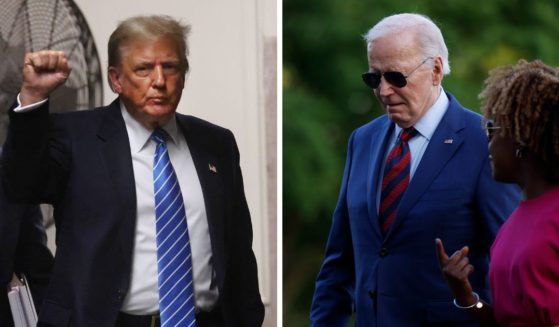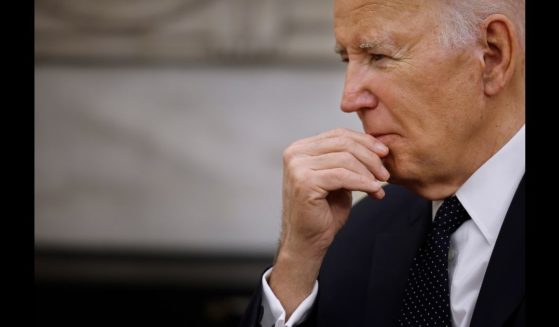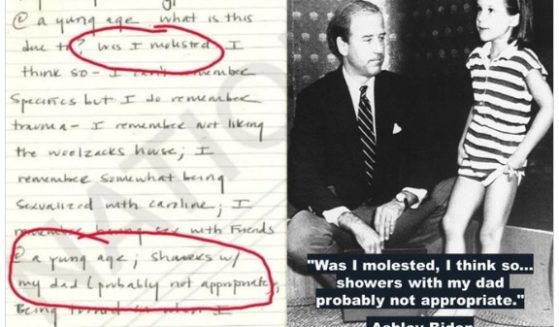Tucker Asks Tim Scott the Toughest Question That the Elite Will Absolutely Hate
If there’s one threat former President Donald Trump faces right now in the Republican presidential primaries, it’s certainly not in the polls. Indeed, most show him at or above 50 percent support among GOP voters.
No, instead the issue might be the donors. Not the small-money donors, but the deep-pocketed ones — the kind that generally didn’t want to be associated with Trump in the first place, don’t want to be associated with him in 2024 and don’t like the idea of an ascendent populism within the party.
These were supposed to be the folks who would be putting big bucks behind the guy who was supposed to be Trump’s main rival, Florida Gov. Ron DeSantis. DeSantis has consistently underwhelmed in the polls, however, which has led to reports their new go-to guy is South Carolina Sen. Tim Scott.
Thus, at the first major event of the campaign season with most candidates present — Trump notably skipped out — Tucker Carlson had a question for Scott that he and GOP elites aren’t going to like answering: If you’re getting big-donor money, tell us, how do you disagree with those donors?
For those who missed it, Carlson was the moderator of the day-long Friday forum in which the former Fox News host did a series of one-on-ones with six of the candidates — in order of appearance, Scott, former Arkansas Gov. Asa Hutchinson, former Vice President Mike Pence, former U.S. ambassador to the United Nations and South Carolina Gov. Nikki Haley, businessman and conservative activist Vivek Ramaswamy, and DeSantis.
First up to bat was Scott, and Carlson noted, roughly 20 minutes into the interview, that he had “Googled you this morning.
“Ah. I did that last night with you, actually,” Scott said, to laughs. “I was like, ‘Wow, there’s a whole lot to read!'”
After a bit of japing between Carlson and Scott, the former Fox News host got to the point: “There must have been 10 stories this morning about Tim Scott, you know, shooting to the top, and all super, super complimentary.
“And all these big Republican donors, like — ‘Tim Scott’s amazing!’ And a lot of support from some of the big money centers in the Republican Party.”
Ten might have been an overstatement, but there were certainly a few — most notably Politico’s Thursday report, self-explanatorily titled: “Top donors, souring on DeSantis, start looking at Tim Scott.”
“Billionaire businessman Ronald Lauder, the Estée Lauder makeup heir who supported Trump in 2020, recently flew to South Carolina to meet with Scott, the state’s junior senator and longshot presidential candidate, according to three people aware of the late June meeting,” the outlet’s Sally Goldenberg and Natalie Allison reported.
“The meeting comes amid widespread angst among wealthy GOP backers about the emerging 2024 field, and DeSantis’ bumpy start in particular. Many high-dollar donors in Trump’s native New York City have tired of the former president and worry about his general election chances,” the report continued.
“But they say their faith in the Florida governor has been shaken by early campaign missteps and his hardline positions on abortion, transgender rights and other culture-war issues. They fear time is running out for anyone else to break through.”
Scott is the probable alternative among those in what Politico described as “the check-writing class” — something CNN seemed to echo with a similar report later on Thursday. This is despite the fact the South Carolina senator is running at only 3.2 percent in the RealClearPolitics polling aggregate, good for fifth. (Trump remains first with 53.0 percent, as of Sunday morning, with Scott also staring up at DeSantis with 20.6 percent, Pence at 6.3 percent and Haley at 3.4 percent.)
“I mean, every candidate wants that,” Carlson said. “But it got me thinking, and I’ll ask all the candidates, but what are the big issues on which you disagree with your donors?”
At this point — in one of the more scrutinized moments of Friday’s proceedings — Scott proceeded to rise and address the audience directly, joking that the “good news is I’m glad to hear they’re all flocking to me. I wish they would go ahead and write the check, too, because we haven’t seen that yet.”
“I will simply say that the issues that I strongly support is, I believe America can do for anyone what she has done for me … there is this time where there is this pervasive force, radical left, parts of corporate America, that continues to force this culture of grievance on the American people,” Scott told the audience — with Carlson looking slightly incredulous in the background, it must be noted.
“And along with the culture of grievance comes this drug of victimhood, the narcotic of despair — that folks have actually figured out that you can make a profit off of conflict,” Scott continued. “I want to stand in the gap and say the truth of my life disproves the lies of the radical forces that believe we should be in constant conflict with one another. America needs positive powerful, biblically sound leadership to regain the high ground.”
Scott went on to relate his personal story and his walk with the Lord — which is powerful stuff, and he said that “if you write a check and you don’t like that, you can have your money back, because I don’t stand for donors, I don’t stand for folks who contribute, I stand because there is a man Who walked on this Earth for 33 years, Who paid the ultimate price for our freedom, and if I’m going to do my job, my job is according to Matthew 25:21: ‘Well done, my good and faithful servant.’ That’s the job I have.”
Scott went on to say, as he retook his seat, that “if you play for an audience of one, it doesn’t matter who makes the contributions. Frankly, I don’t know those donors that you’re talking about who are flocking to my campaign. I’m looking forward to them, I really am.”
This is all very nice, and Carlson agreed: “Speaking for myself, I love what you just said, and I agree with it, amen. It’s just — a lot of Republican primary voters have gotten kind of cynical, because the Republican Party doesn’t care what they think … that maybe donors are kind of driving the agenda and not voters. And I’ve lived in D.C. my whole life, and that’s totally true.”
Thus, the question again: If big-name donors come to Tim Scott from the RINOville section of Wall Street, where would he disagree with them specifically?
Scott’s answer wasn’t awful: First, no bank bailouts; second, a nod toward welfare reform to get “able-bodied” people working; third, “if you commit a violent crime, you go to jail, period”; fourth, “men should compete in sports against men”; and fifth, getting serious about closing the southern border.
“And for those who don’t like common-sense principles driven by the Judeo-Christian foundation, choose another candidate,” Scott said. “It’s that simple.”
Well, not entirely “that simple.” We were four minutes into the question before Carlson was able to bring Scott back to a point of substantively answering it, which isn’t exactly the best augury for a five-point no-buts plan to counter the influence dithering RINO donors might play in the 2024 race.
It’s difficult to disagree with what Scott said when he said it — either in using the question to relay his campaign narrative or when he finally got down to brass tacks — but it’s also somewhat dispiriting to hear the potential new face of “the check-writing class” take four minutes to get to the point where he’ll really answer a question about how he might stand up to said class.
But, if Scott also fails to live up to the expectations of the donors unimpressed with Trump’s reputation or DeSantis’ polling performance, they’ll quickly move on to the next big thing. Rest assured they’ll also take a good four minutes — if not a whole lot longer — to give a substantive answer, as well.
That’s how it works. That’s how D.C. has always worked. And if you want to know why Trump remains popular among Republicans, it’s because he’s one of the few forces untethered to the Beltway-Wall Street axis that has dominated politics for so long on both sides of the aisle. That’s why the GOP elite with control over the checkbooks hate this question being asked, period, because it reveals their priorities aren’t aligned with those of Republican voters in 2023 or 2024. Anyone who gains the favor of “the check-writing class” — Scott included — needs to keep that in mind, or there’s no path to victory no matter how much money is injected into their campaign.
Truth and Accuracy
We are committed to truth and accuracy in all of our journalism. Read our editorial standards.












